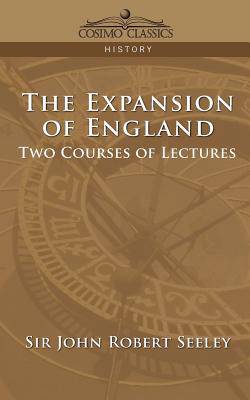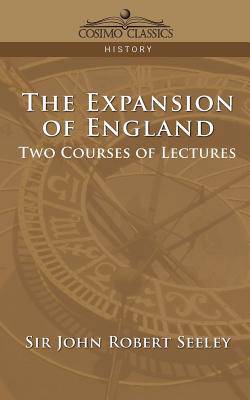
Door een staking bij bpost kan je online bestelling op dit moment iets langer onderweg zijn dan voorzien. Dringend iets nodig? Onze winkels ontvangen jou met open armen!
- Afhalen na 1 uur in een winkel met voorraad
- Gratis thuislevering in België vanaf € 30
- Ruim aanbod met 7 miljoen producten
Door een staking bij bpost kan je online bestelling op dit moment iets langer onderweg zijn dan voorzien. Dringend iets nodig? Onze winkels ontvangen jou met open armen!
- Afhalen na 1 uur in een winkel met voorraad
- Gratis thuislevering in België vanaf € 30
- Ruim aanbod met 7 miljoen producten
Zoeken
Omschrijving
[T]he history of England ought to end with something that might be called a moral. Some large conclusion ought to arise out of it; it ought to exhibit the general tendency of English affairs in such a way as to set us thinking about the future and divining the destiny, which is reserved for us. -J.R. Seeley, from "Lecture 1: Tendency in English History" From this optimistic and enthusiastic starting point, the prominent historian and classical scholar launches into a fervent elevation of Britain's imperial enterprise. The empire was flourishing when he came to its defense in this, his most successful work, first published in 1883, but Seeley worried about the peculiar inattentiveness on the part of the empire's masters: "We seem to have conquered and peopled half the world in a fit of absence of mind," Seeley frets here. With this nod of approval to what he believed was an English destiny to "civilize" the world, this work became a standard text for the new wave of liberal imperialists in 1880s Britain. Today, it is an illuminating look at a world power so enthralled to its own hubris that it could not see downfall looming. SIR JOHN ROBERT SEELEY (1834-1895) was Regius Professor of Modern History at Cambridge, a fellow of the Royal Historical Society, and an honorary member of Historical Society of Massachusetts. He is also the author of Ecce Homo.
Specificaties
Betrokkenen
- Auteur(s):
- Uitgeverij:
Inhoud
- Aantal bladzijden:
- 320
- Taal:
- Engels
- Reeks:
Eigenschappen
- Productcode (EAN):
- 9781596052659
- Verschijningsdatum:
- 1/09/2005
- Uitvoering:
- Paperback
- Formaat:
- Trade paperback (VS)
- Afmetingen:
- 127 mm x 203 mm
- Gewicht:
- 349 g

Alleen bij Standaard Boekhandel
+ 43 punten op je klantenkaart van Standaard Boekhandel
Beoordelingen
We publiceren alleen reviews die voldoen aan de voorwaarden voor reviews. Bekijk onze voorwaarden voor reviews.











